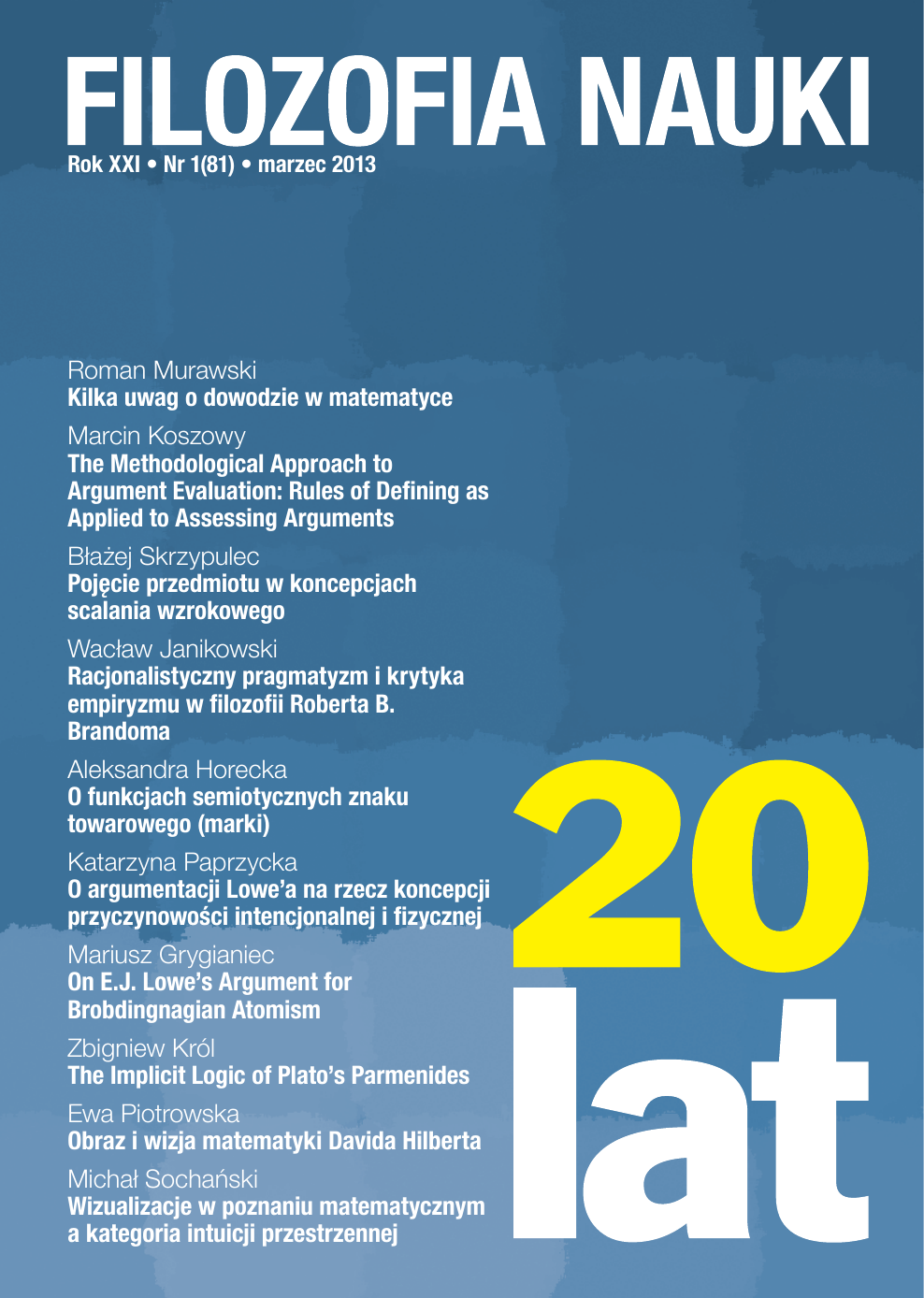The Implicit Logic of Plato’s <i>Parmenides</i>
Słowa kluczowe:
philosophy of mathematics, foundations of mathematics, intuitionistic logic, logicism, Frege, Plato, history of logicAbstrakt
This paper is devoted to the reconstruction of the implicit logic of Plato’s Par-menides. The reconstructed logic, F, makes it possible to form a new semi-intuitionistic system of logic of predicates, FN. The axioms of Peano Arithmetic (PA) and an axiom of infinity follow from FN. Therefore, FN can be seen as a new attempt at the realization of Frege’s logicist program. Some very strong systems can be seen as other variants of FN, e.g. Leśniewski’s ontology. The hypothesis from Parmenides II contains proof of the existence of the two highest principles, i.e. the One and the Dyad, their mutual relationship, their relations to other things, and the reasoning regarding the mutual relationship follows some exact formal rules. Six types of Plato’s negation of a predicate are defined. The system is a first-order logic with non-classical negation of a predicate (local negation) that is non-definable by classical sentential negation. Therefore, the implicit logic of Plato’s Parmenides differs from classical syllogistics (formed in the Łukasiewicz’s style) as well as from the classical predicate calculus.Pobrania
Opublikowane
2013-03-01
Jak cytować
Król, Z. (2013). The Implicit Logic of Plato’s <i>Parmenides</i>. Filozofia Nauki, 21(1), 121–135. Pobrano z https://www.fn.uw.edu.pl/index.php/fn/article/view/709
Numer
Dział
Artykuły















 Filozofia Nauki | ISSN 1230-6894 | e-ISSN 2657-5868
Filozofia Nauki | ISSN 1230-6894 | e-ISSN 2657-5868